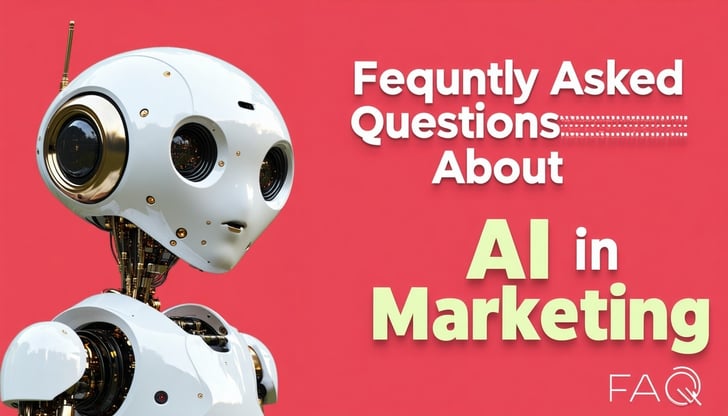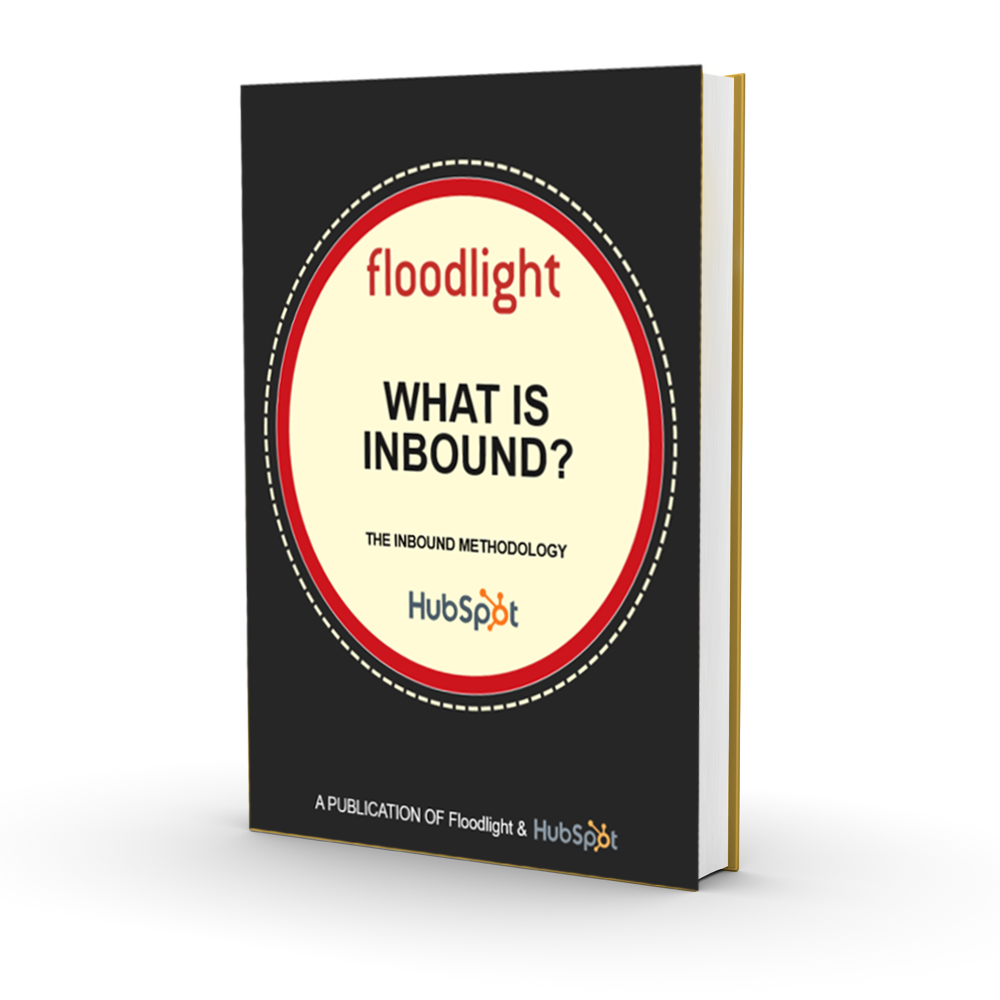How AI is Revolutionising Marketing in 2025: 7 Powerful Strategies for Success
Key Takeaways

Artificial Intelligence (AI) is transforming marketing strategies across industries, enabling data-driven decision-making, personalised customer experiences, and streamlined operations. Here's what you need to know about leveraging AI in your marketing efforts:
- Automation boosts efficiency: AI tools manage repetitive tasks like email segmentation and campaign optimisation, freeing marketers to focus on creative strategy
- Predictive analytics enables proactive decisions: AI identifies patterns in customer data to guide campaign strategies and improve ROI
- Hyper-personalisation transforms experiences: Machine learning and NLP create customised content and interactions at scale
- Seamless integration enhances workflows: Advanced AI tools work with existing CRMs and marketing platforms
- Content creation becomes faster and more precise: AI assists in producing SEO-optimised content efficiently
- Real-time engagement strengthens relationships: Chatbots and sentiment analysis enable instant responses to customer needs
- Data-driven tracking refines strategies: AI facilitates accurate ROI measurement and budget optimisation
- Innovation enables scalable growth: Expand campaigns without proportionally increasing resources
Introduction: The AI Marketing Revolution

In today's hyper-competitive digital landscape, marketing success increasingly depends on precision, agility, and personalisation—three areas where AI excels. With its ability to process massive amounts of data, analyse trends, and predict outcomes with remarkable accuracy, AI is fundamentally reshaping how UK businesses engage with their audiences and achieve measurable success.
According to recent research by Gartner, organisations using AI in marketing increase revenue by 20-30% on average, while simultaneously reducing costs. This dual benefit makes AI adoption not just advantageous but essential for competitive businesses in 2025.
However, effective implementation goes beyond simply incorporating new technologies. Businesses must focus on strategic integration—leveraging AI to automate workflows, uncover actionable customer insights, and deliver personalised experiences at scale. When implemented thoughtfully, AI elevates marketing efforts by making them more efficient, adaptable, and ROI-focused.
This comprehensive guide explores the actionable strategies, tools, and best practices you need to harness the transformative power of AI in your marketing efforts, with practical examples relevant to UK businesses.
1. Enhancing Customer Data Analysis with AI

Customer data serves as the foundation of effective marketing, but the explosion of digital interactions has made analysing it increasingly challenging. British companies now collect an average of 8-10 touchpoints per customer, creating vast datasets that are impossible to process manually. AI offers powerful solutions through predictive analytics and advanced segmentation, enabling marketers to transform overwhelming information into clear insights and actionable strategies.
AI-Powered Predictive Analytics
AI excels at identifying hidden patterns in data, providing accurate predictions about customer behaviour. Predictive analytics leverages sophisticated machine learning models to anticipate customer preferences, buying intentions, and churn risk with remarkable precision. This foresight helps marketers design well-timed, highly targeted campaigns that resonate with specific audience segments.
Real-World Example: Not just limited to giants like Amazon, UK retailer ASOS uses predictive analytics to analyse browsing patterns and purchase history, driving a 35% increase in average order value through personalised recommendations.
Implementation Strategy: Start with existing CRM integrations like Salesforce Einstein or HubSpot's predictive lead scoring, which provide actionable customer insights without requiring extensive technical expertise.
Statistical Impact: According to McKinsey, UK companies implementing AI-driven predictive analytics see conversion rates improve by 25-49%, significantly outperforming traditional approaches.
Advanced Segmentation and Personalisation
AI takes traditional segmentation to unprecedented levels by analysing deeper variables, including psychographics, behavioural patterns, and sentiment analysis. Platforms like Blue Conic enable businesses to segment audiences into micro-personas based on dozens of variables simultaneously, allowing for hyper-relevant messaging tailored to individual needs.
For example, London-based fitness app Fiit leverages AI to categorise users based on workout preferences, fitness levels, and engagement patterns. This enables them to recommend personalised workout plans specific to individual goals and habits, resulting in 67% better retention compared to generic programmes.
"AI segmentation has transformed our understanding of customer journeys. We now segment based on behaviour patterns we couldn't even identify two years ago, leading to 43% higher engagement rates." – Marketing Director, major UK financial services company
With AI-driven data analysis, marketers can make informed decisions based on comprehensive insights rather than limited samples or intuition. This data-first approach significantly improves targeting accuracy, campaign performance, and overall marketing ROI.
2. Automating Marketing Operations for Greater Efficiency
![]()
AI-driven marketing automation has revolutionised operational efficiency by streamlining repetitive tasks that previously consumed valuable time and resources. Modern automation solutions go beyond rigid workflows, using machine learning to adapt and improve processes over time based on performance data. The result? Greater productivity and smarter resource allocation across marketing departments.
Optimised Campaign Management
AI-centric platforms like HubSpot, Marketo, and UK-based Communicator automate critical functions such as email marketing, lead scoring, and outreach scheduling, reducing operational inefficiencies by up to 70%. These sophisticated tools can evaluate the performance of running campaigns and refine them in real-time, adjusting elements like send times, subject lines, and content based on audience response.
Success Story: British retailer Marks & Spencer implemented AI-generated email content using tools like Phrasee, resulting in a 145% increase in click-through rates and a 50% reduction in campaign creation time.
Lead Management Efficiency: Platforms like Drift and Intercom use conversational AI for lead qualification and routing, ensuring that sales teams engage only with high-value prospects. UK companies implementing these solutions report 35-40% increases in sales team productivity.
Dynamic Content Scheduling
AI tools eliminate guesswork from content scheduling by analysing audience behaviour patterns to determine optimal posting times. Social media management platforms like Hootsuite Insights and ContentCal (developed in the UK) harness this capability, ensuring businesses maintain visibility on increasingly crowded platforms.
For example, Bristol-based digital agency Noisy Little Monkey uses AI scheduling to optimise posting times across different social channels, resulting in a 78% increase in engagement compared to fixed scheduling approaches.
Improving Ad Performance
AI's role in dynamic ad optimisation has transformed pay-per-click (PPC) campaigns across platforms. Tools like Google's Performance Max and Facebook's Advantage+ use machine learning to adjust bids in real-time based on conversion likelihood, ensuring maximum value from marketing budgets.
UK travel company On the Beach credits AI-optimised advertising for a 38% reduction in cost-per-acquisition (CPA) while simultaneously increasing booking volume. Their system continuously analyses performance metrics to refine messaging, targeting parameters, and creative elements without requiring constant human intervention.
By automating routine marketing workflows, AI frees marketing teams to focus on creative strategy and customer experience, allowing businesses to operate at unprecedented levels of efficiency while delivering better results.
3. Transforming Customer Interactions with AI

AI enhances customer experience by making interactions faster, smarter, and highly personalised. Through innovations like advanced chatbots and natural language processing (NLP), businesses can deliver tailored responses and proactive support that resonate with customers on an individual level.
AI-Powered Conversational Assistants
Today's AI chatbots are far more sophisticated than basic scripted systems—they can engage users in natural, human-like conversations, handle complex queries, and adapt to customer sentiment in real-time. According to Juniper Research, chatbots will save businesses over £6 billion in customer service costs annually by 2025.
UK Implementation: Ocado's customer service chatbot handles over 40% of customer queries without human intervention, reduces response times from hours to seconds, and learns from each interaction to continuously improve.
Key Benefits: Modern AI assistants minimise customer wait times, handle frequently asked questions seamlessly, and offload support teams—resulting in more resource availability for high-priority tasks that require human empathy and problem-solving.
Accessibility Advantage: Conversational AI provides 24/7 support, particularly important for UK businesses serving international markets across different time zones.
Hyper-Personalised Engagements
NLP-based solutions help businesses analyse unstructured data from customer interactions, including reviews, support conversations, and social media engagement. This capability allows companies to understand emotions and recurring themes at scale.
UK banking app Monzo uses AI to analyse customer service interactions and feedback, identifying patterns that inform product improvements and personalised communications. Their AI system identifies when customers might need specific financial advice based on spending patterns, enabling proactive support that has contributed to their industry-leading satisfaction scores.
Strengthening Loyalty Programmes
AI's ability to analyse granular purchasing patterns makes loyalty programmes more relevant and effective. Tesco's Clubcard utilises AI to personalise offers and rewards based on individual shopping habits, resulting in redemption rates 3.8 times higher than standard promotions.
"Our AI-powered loyalty programme doesn't just track purchases—it understands customer preferences at a deeper level, allowing us to suggest products customers didn't even realise they wanted." – Customer Experience Director, major UK retail chain
By leveraging AI for customer interactions, businesses create more meaningful connections that foster loyalty and increase lifetime value. The technology transforms standard transactions into personalised experiences that customers genuinely appreciate.
4. AI-Driven Content Optimisation and Creation

AI in content marketing has evolved from basic assistance to sophisticated partnership, turning what was once a time-consuming task into a streamlined process. From ideation to SEO optimisation and performance analysis, AI tools are reshaping how marketers create and distribute impactful content.
Turbocharging Content Ideation and Research
Tools like BuzzSumo, MarketMuse, and UK-developed ContentBot help marketers identify trending topics, content gaps, and competitor strategies. These AI platforms evaluate everything from search trends to audience engagement patterns, providing actionable content suggestions with high potential impact.
According to research by the Content Marketing Institute, teams that use AI for content planning produce 57% more content while maintaining or improving their quality standards. This efficiency gain enables consistent publishing schedules without sacrificing depth or relevance.
Real-Time Content Personalisation
Dynamic content optimisation tools allow marketers to create tailored content experiences at scale. Platforms like Persado and Phrasee analyse language patterns to generate copy variants optimised for specific audience segments, while visual tools like Canva's AI features simplify design customisation.
Manchester-based ecommerce retailer Boohoo implements dynamic content personalisation on their product pages, showing different descriptions, related items, and calls-to-action based on customer browsing history and preferences. This approach has increased their conversion rate by 21% compared to static content.
SEO Optimisation Through AI
AI-powered SEO tools have revolutionised content optimisation for search visibility. Platforms like Surfer SEO, Clearscope, and UK-based Authoritas use advanced algorithms to:
- Analyse top-performing content for specific keywords
- Suggest optimal content structure and format
- Recommend semantic keywords and related topics
- Predict ranking potential before publication
- Identify content improvement opportunities
Content teams at digital marketing agency Screaming Frog (Oxford) report 70% faster SEO content production and an average improvement of 12 ranking positions when using AI-driven SEO tools compared to traditional methods.
5. Scaling Personalisation with AI

True personalisation goes beyond simply adding a customer's name to an email. AI enables businesses to deliver completely customised experiences across all touchpoints, creating deeper connections with audiences while maintaining operational efficiency.
Dynamic Website Experiences
AI-powered tools like Dynamic Yield and Optimizely enable real-time website personalisation based on visitor behaviour, preferences, and demographics. These platforms can automatically adjust product recommendations, content display, and even navigation elements to create experiences tailored to each visitor.
UK retailer John Lewis uses AI personalisation to show different homepage layouts and featured products based on customer segments, resulting in a 27% increase in average time on site and a 15% improvement in conversion rates.
Predictive Product Recommendations
Advanced recommendation engines leverage collaborative filtering and deep learning to suggest products with remarkable accuracy. These systems analyse thousands of data points, including browsing patterns, purchase history, demographic information, and even contextual factors like weather or time of day.
Implementation Example: Sainsbury's online grocery platform utilises AI recommendations that take into account seasonal preferences, past purchases, and complementary products, resulting in an average 23% increase in basket size.
Cross-Channel Coordination: Leading brands ensure recommendation consistency across websites, apps, email campaigns, and even in-store experiences through unified AI systems.
Personalised Customer Journeys
AI enables sophisticated journey mapping and optimisation, automatically guiding customers through personalised paths based on their behaviour and preferences. This capability is particularly valuable in complex buying decisions with multiple touchpoints.
British Airways implements AI-driven journey personalisation that adapts messaging and offers based on where customers are in their travel planning process. Their system recognises when customers are researching destinations versus actively planning bookings, adjusting content accordingly and achieving 32% higher conversion rates.
6. Measuring and Optimising Marketing ROI with AI

AI transforms marketing measurement from retrospective analysis to proactive optimisation, enabling marketers to monitor performance in real-time and continuously improve results. This capability is particularly valuable as marketing channels multiply and customer journeys become increasingly complex.
Advanced Attribution Modelling
Traditional attribution models struggle with today's non-linear customer journeys. AI-powered attribution uses machine learning to analyse thousands of touchpoints and accurately assign value to each marketing interaction, providing a much clearer picture of what's driving conversions.
UK companies implementing AI attribution models report 15-30% improvements in marketing ROI by reallocating budgets from underperforming channels to high-impact touchpoints that traditional models missed.
Predictive Budget Allocation
AI systems can forecast campaign performance with remarkable accuracy, enabling smarter budget decisions. Platforms like Albert (used by several major UK brands) continuously analyse performance data to recommend optimal spending across channels and campaigns.
Digital agency Brainlabs uses AI budget optimisation for its UK clients, resulting in an average 23% improvement in return on ad spend compared to traditional planning methods.
Real-Time Performance Dashboards
AI-powered analytics platforms like Datorama and Google's Looker provide unified views of marketing performance across all channels, automatically highlighting insights and anomalies that require attention.
These intelligent dashboards go beyond reporting by recommending specific actions to improve performance based on patterns and trends in the data. For example, the system might suggest increasing spend on a particular ad creative that's performing exceptionally well with a specific audience segment.
"AI analytics have transformed our decision-making speed. What used to be weekly review meetings with historical data are now real-time optimisations based on what's happening right now." – Marketing Operations Director, UK insurance company
7. Future-Proofing Your Marketing with Emerging AI Technologies

As AI continues to evolve rapidly, forward-thinking marketers are already exploring emerging capabilities that will define the next generation of marketing excellence. Understanding these innovations provides a competitive advantage for businesses ready to adopt early.
Voice and Visual Search Optimisation
With over 40% of UK adults now using voice search regularly and visual search gaining popularity, AI tools that optimise content for these modalities are becoming essential. Platforms like BrightEdge and seoClarity now include AI features specifically designed for voice and visual search optimisation.
Predictive Customer Lifetime Value
Advanced AI models can now predict lifetime value potential at early stages of the customer relationship, enabling more strategic resource allocation and personalised retention strategies. UK financial services companies report 28% improvements in retention when implementing AI-driven lifetime value predictions.
Emotion AI and Sentiment Analysis
Sophisticated emotion AI tools analyse facial expressions, voice patterns, and text to determine emotional responses to marketing content. This technology enables more nuanced understanding of customer reactions beyond traditional engagement metrics.
BBC Media uses emotion AI during content testing to measure audience emotional responses, allowing them to refine programming based on deeper engagement insights rather than just viewership numbers.
Autonomous Marketing Systems
The most advanced AI marketing systems are moving toward true autonomy—making decisions, optimising campaigns, and allocating resources with minimal human intervention. While still emerging, these systems promise unprecedented efficiency and performance for early adopters.
Implementation Roadmap: Integrating AI into Your Marketing Strategy

Adopting AI marketing capabilities requires a strategic approach tailored to your organisation's specific needs and readiness. The following implementation framework provides a structured path to success:
1. Assessment and Goal Setting
Begin by evaluating your current marketing processes to identify areas where AI can deliver the greatest impact. Set specific, measurable objectives tied to business outcomes rather than technology implementation.
2. Start with Pilot Projects
Rather than attempting a complete transformation, begin with focused pilot projects in high-impact areas. This approach allows you to demonstrate value quickly while building organisational support.
Recommended starter projects:
- Implementing predictive lead scoring
- Adding AI-powered chatbots for common customer queries
- Using AI content optimisation for top-performing pages
3. Build Team Capabilities
Successful AI implementation requires both technical knowledge and strategic marketing expertise. Invest in upskilling existing team members while considering partnerships with specialised agencies for complex implementations.
UK-specific resources include the AI Marketing Academy and specific AI marketing courses offered by the Chartered Institute of Marketing.
4. Scale Proven Solutions
Once pilot projects demonstrate value, systematically expand successful implementations across your marketing function. Prioritise initiatives based on potential impact and integration complexity.
5. Establish Governance and Ethics
As AI becomes central to marketing operations, establish clear governance principles that address data usage, privacy compliance (particularly regarding GDPR), and ethical considerations surrounding personalisation and automation.
Conclusion: The Competitive Advantage of AI Marketing

AI has emerged as a transformative force in marketing, revolutionising everything from data analysis to personalisation, content creation, and strategic execution. By thoughtfully integrating AI capabilities into marketing workflows, businesses can create exceptional customer experiences, produce more impactful content, and achieve scalable growth without proportionally increasing costs.
The most successful organisations approach AI not merely as a technology implementation but as a strategic capability that enhances human creativity and strategic thinking. The result is marketing that's simultaneously more efficient and more effective—connecting with customers on a deeper level while delivering measurable business results.
As AI continues to evolve rapidly, companies that commit to ongoing exploration and adoption will maintain a significant competitive advantage. The businesses that thrive won't simply keep pace with technological advances but will leverage AI strategically to redefine what's possible in customer engagement, revenue generation, and brand building.
The time to capitalise on AI's transformative power in marketing isn't on the horizon—it's now. UK businesses that embrace this reality position themselves for sustained success in an increasingly AI-driven marketplace.
Frequently Asked Questions About AI in Marketing

What specific AI marketing tools should UK businesses consider first?
Start with tools that address your most pressing challenges or biggest opportunities. For beginners, consider:
- HubSpot Marketing Hub for automation and lead scoring
- Phrasee or Persado for AI-powered copywriting
- Drift or Intercom for conversational marketing
- BrightEdge or Clearscope for content optimisation
- Google's Performance Max for advertising optimisation
Each offers varying complexity levels with substantial potential ROI for UK businesses.
How can smaller businesses with limited budgets implement AI marketing?
Many AI marketing tools offer tiered pricing models or focused solutions suitable for smaller budgets:
- Begin with AI features built into platforms you already use (e.g., Meta's ad optimisation or Mailchimp's audience insights)
- Utilise single-purpose AI tools addressing specific challenges
- Consider AI-powered freelance platforms like Fiverr Pro for project-based AI marketing support
- Explore UK government innovation grants specifically supporting AI adoption in SMEs
What skills should marketing teams develop to work effectively with AI?
Modern marketing teams need a blend of capabilities:
- Data literacy to understand and interpret AI insights
- Strategic thinking to translate AI capabilities into marketing applications
- Technical understanding of AI limitations and appropriate use cases
- Creative skills to complement AI-driven processes
- Ethical awareness regarding data usage and personalisation
UK-specific training resources include dedicated courses from the CIM and specialised programmes at institutions like Imperial College London.
How is AI marketing different for B2B versus B2C companies?
While core technologies remain similar, implementation often differs:
B2B Focus Areas:
- Account-based marketing personalisation
- Complex lead scoring models
- Content optimisation for longer sales cycles
- Predictive analytics for account potential
B2C Focus Areas:
- Real-time personalisation at scale
- Emotion-driven content optimisation
- Visual search and recommender systems
- Rapid campaign optimisation
Both sectors benefit from AI capabilities when applied to their unique customer journeys and decision-making processes.
What privacy considerations should UK marketers be aware of when implementing AI?
UK businesses must navigate several important regulations:
- GDPR compliance remains essential for all data collection and processing
- The UK AI governance framework introduces additional considerations
- Third-party cookie deprecation requires new approaches to data collection
- Transparency requirements around automated decision-making
Successful implementation requires balancing personalisation benefits with robust privacy practices and clear communication with customers about data usage.

